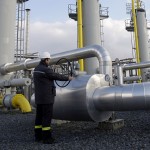Which country in Europe is the largest energy consumer and which are the least dependent
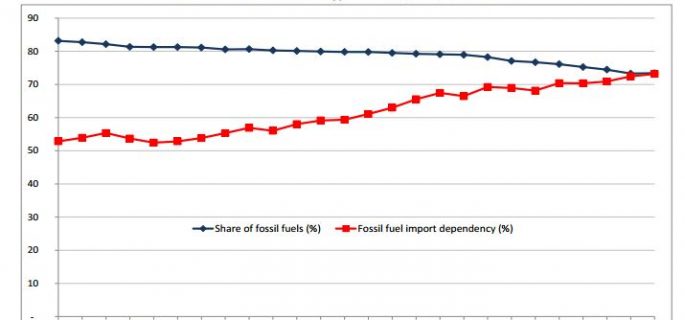
Energy consumption in the EU below its 1990 leveL… but EU dependency on fossil fuel imports on the rise
In 2015, gross inland energy consumption, which reflects the energy quantities necessary to satisfy all inland consumption, amounted in the European Union (EU) to 1 626 million tonnes of oil equivalent (Mtoe), below its 1990 level (-2.5%) and down by 11.6% compared to its peak of almost 1 840 Mtoe in 2006.
Accounting for nearly three-quarters of EU consumption of energy in 2015, fossil fuels continued to represent by far the main source of energy, although their weight has constantly decreased over the past decades, from 83% in 1990 to 73% in 2015. However, over this period, EU dependency on imports of fossils fuels has increased, with 73% imported in 2015 compared with just over half (53%) in 1990. In other words, while in 1990 one tonne of fossil fuels was imported for each tonne produced in the EU, by 2015 three tonnes were imported for each tonne produced
These figures are issued by Eurostat, the statistical office of the European Union, and are complemented with an article on energy saving in the EU.
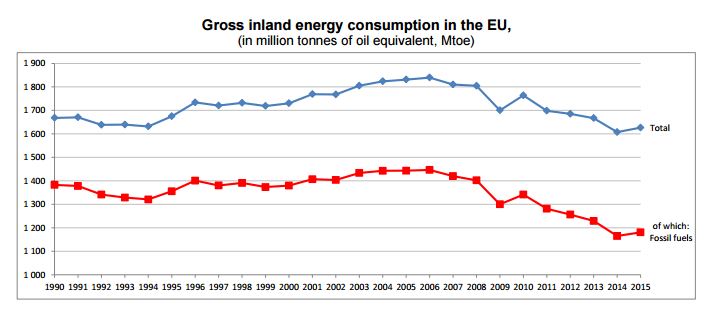
Germany, largest energy consumer in the EU
With 314 Mtoe (or 19% of total energy consumption in the EU), Germany remained in 2015 the main user of energy in the EU, ahead of France (253 Mtoe, or 16%), the United Kingdom (191 Mtoe, or 12%), Italy (156 Mtoe, or 10%), Spain (121 Mtoe, or 7%) and Poland (95 Mtoe or 6%).
Compared with 1990, the largest decreases in energy consumption in 2015 were recorded in the three EU Baltic States – Lithuania (-57%), Latvia (-45%) and Estonia (-37%) – as well as in Romania (-44%) and Bulgaria (-33%). In contrast, the highest increases were registered in Cyprus (+41%), Ireland (+38%), Spain (+35%) and Austria (+33%).
Less than half of the energy consumption from fossil fuels in Sweden, Finland and France
In every EU Member State, the share of fossil fuels in energy consumption decreased over the period 1990-2015, most notably in Denmark (from 91% in 1990 to 69% in 2015), Latvia (from 83% to 61%) and Romania (from 96% to 74%). However, the large majority of Member States remains highly reliant on fossil fuels for their energy consumption. In 2015, fossil fuels made up less than half of the energy consumption in only three Member States: Sweden (30%), Finland (46%) and France (49%).
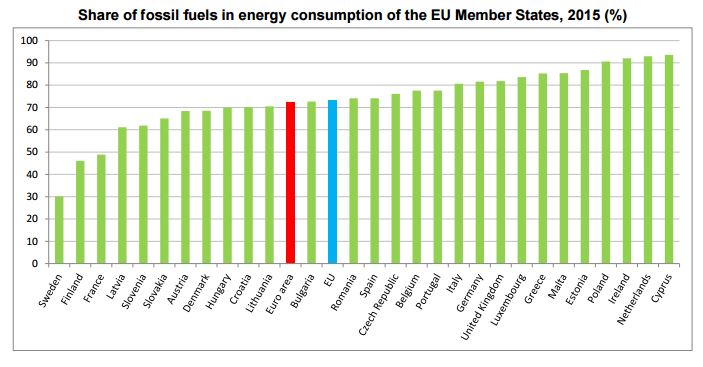
Denmark and Estonia, least dependent on energy imports
Most of the EU Member States have seen their dependency on fossil fuel imports increase between 1990 and 2015. This was notably the case for the United Kingdom (from a dependency rate of 2% in 1990 to 43% in 2015), the Netherlands (from 22% to 56%), Poland (from 1% to 32%) and the Czech Republic (from 17% to 46%).
In 2015, the Member State by far the least dependent on fossil fuel imports was Denmark (4%), followed by Estonia (17%), Romania (25%) and Poland (32%).
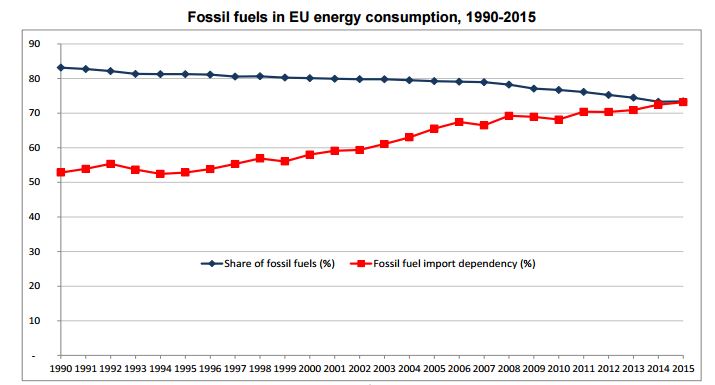
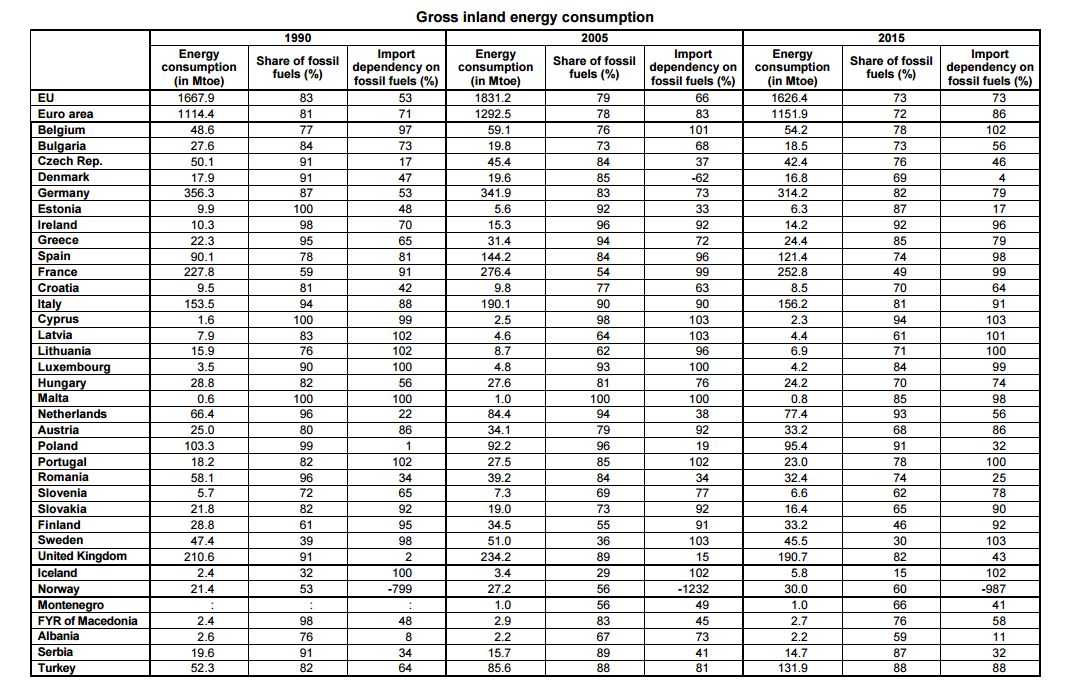
Source: eurostat












